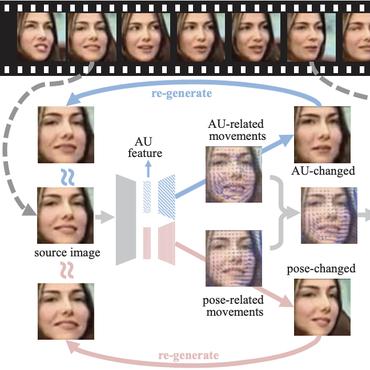DeepFN: Towards Generalizable Facial Action Unit Recognition with Deep Face Normalization
Facial action unit recognition has many applications from market research to psychotherapy and from image captioning to entertainment. Despite its recent progress, deployment of these models has been impeded due to their limited generalization to unseen people and demographics. This work conducts an in-depth analysis of performance across several dimensions: individuals(40 subjects), genders (male and female), skin types (darker and lighter), and databases (BP4D and DISFA). To help suppress the variance in data, we use the notion of self-supervised denoising autoencoders to design a method for deep face normalization(DeepFN) that transfers facial expressions of different people onto a common facial template which is then used to train and evaluate facial action recognition models. We show that person-independent models yield significantly lower performance (55% average F1 and accuracy across 40 subjects) than person-dependent models (60.3%), leading to a generalization gap of 5.3%. However, normalizing the data with the newly introduced DeepFN significantly increased the performance of person-independent models (59.6%), effectively reducing the gap. Similarly, we observed generalization gaps when considering gender (2.4%), skin type (5.3%), and dataset (9.4%), which were significantly reduced with the use of DeepFN. These findings represent an important step towards the creation of more generalizable facial action unit recognition systems.
PDF Abstract




 DISFA
DISFA
 BP4D
BP4D